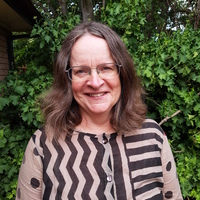
Laurajane Smith
I am currently Director of the Centre of Heritage and Museum Studies, the Australian National University, Canberra, Australia. I have a particular interest in theorising heritage as a cultural process/practice and examining the intersection between heritage theory and practice and cultural policy. I also have long-term research interests in the role of heritage and heritage discourses in political movements, including labour movements, Indigenous political movements and issues associated with multiculturalism and the politics of recognition/difference. I also have an established interest in intangible heritage and argue that indeed ‘all heritage is intangible’.
I am editor of 'International Journal of Heritage Studies' and series general editor with Gönül Bozoglu of 'Key Issues in Cultural Heritage' (Routledge).
Prior to arriving at the Australian National University in 2010, I was Reader in heritage studies at the University of York, UK (directing their MA in Cultural Heritage Management for nine years). I am, however, originally from Sydney, I taught Indigenous Studies at the University of New South Wales (1995-2000), and heritage and archaeology at Charles Sturt University (1990-1995). Prior to that, I worked as a heritage/archaeological consultant in South-Eastern Australia.
Although originally trained in archaeology, my work is informed by, and committed to, the development of heritage studies as an interdisciplinary field of enquiry.
I was, with Gary Campbell, founder of the Association of Critical Heritage Studies and its founding chair from 2012-14 (now the position of president). The second conference of which was held at the Australian National University, December, 2014.
In my non-academic life I breed and train Border Collies... see https://www.facebook.com/pages/Gadhar-Kennels/242754755935255?ref=notif¬if_t=page_new_likes
Phone: 61 (0)2 61258162
I am editor of 'International Journal of Heritage Studies' and series general editor with Gönül Bozoglu of 'Key Issues in Cultural Heritage' (Routledge).
Prior to arriving at the Australian National University in 2010, I was Reader in heritage studies at the University of York, UK (directing their MA in Cultural Heritage Management for nine years). I am, however, originally from Sydney, I taught Indigenous Studies at the University of New South Wales (1995-2000), and heritage and archaeology at Charles Sturt University (1990-1995). Prior to that, I worked as a heritage/archaeological consultant in South-Eastern Australia.
Although originally trained in archaeology, my work is informed by, and committed to, the development of heritage studies as an interdisciplinary field of enquiry.
I was, with Gary Campbell, founder of the Association of Critical Heritage Studies and its founding chair from 2012-14 (now the position of president). The second conference of which was held at the Australian National University, December, 2014.
In my non-academic life I breed and train Border Collies... see https://www.facebook.com/pages/Gadhar-Kennels/242754755935255?ref=notif¬if_t=page_new_likes
Phone: 61 (0)2 61258162
less
Related Authors
Noel B. Salazar
KU Leuven
Muqtedar Khan
University of Delaware
Mark Deuze
University of Amsterdam
Louise Steel
University of Wales Trinity Saint David
Benjamin Isakhan
Deakin University
Bob Jessop
Lancaster University
Nina Glick Schiller
The University of Manchester
Armando Marques-Guedes
UNL - New University of Lisbon
Kym Maclaren
Toronto Metropolitan University
Enrico Cirelli
Università di Bologna
InterestsView All (23)

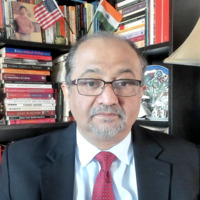
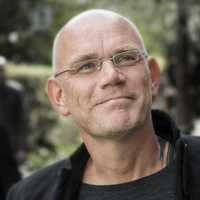
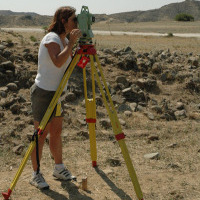

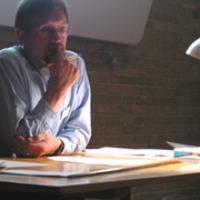



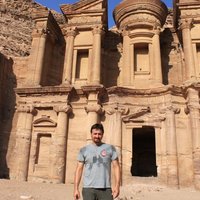
Uploads
Books by Laurajane Smith
Use this link https://rdcu.be/4fw6 to access the book on line (available up to 23 October 2018).
Enter the code FLR40 at the Routledge website checkout for 20% discount.
Publication date January 2012
Publication July 2011, Routledge.
Publication June 2011
The first volume (‘History and Concepts’) describes the development of the modern concern with conserving and preserving material from the past—often conceptualized as ‘heritage’. It also gathers the best research about the key concepts and principles underlying heritage management and conservation practices.
Volume 2 (‘Critical Concepts in Heritage’) traces the dissonant and contested nature of heritage practices and the various attempts that have been made to theorize heritage conservation, curation and preservation practices. The volume contains work on the debates over Indigenous heritage, national identity, and memory and heritage, together with papers that attempt to explain and contextualize these debates.
Volume 3 (‘Heritage as an Industry’) collects the most significant scholarship on issues about the so-called ‘commodification’ of the past and the creation of ‘consensual histories’, while Volume 4 (‘Interpretation and Community’) contains the key material on the practice of heritage interpretation and community heritage projects, as well as work on the developing debates about the nature of intangible heritage.
Papers by Laurajane Smith
Use this link https://rdcu.be/4fw6 to access the book on line (available up to 23 October 2018).
Enter the code FLR40 at the Routledge website checkout for 20% discount.
Publication date January 2012
Publication July 2011, Routledge.
Publication June 2011
The first volume (‘History and Concepts’) describes the development of the modern concern with conserving and preserving material from the past—often conceptualized as ‘heritage’. It also gathers the best research about the key concepts and principles underlying heritage management and conservation practices.
Volume 2 (‘Critical Concepts in Heritage’) traces the dissonant and contested nature of heritage practices and the various attempts that have been made to theorize heritage conservation, curation and preservation practices. The volume contains work on the debates over Indigenous heritage, national identity, and memory and heritage, together with papers that attempt to explain and contextualize these debates.
Volume 3 (‘Heritage as an Industry’) collects the most significant scholarship on issues about the so-called ‘commodification’ of the past and the creation of ‘consensual histories’, while Volume 4 (‘Interpretation and Community’) contains the key material on the practice of heritage interpretation and community heritage projects, as well as work on the developing debates about the nature of intangible heritage.
Rather than going over the critiques identified in the symposium’s call for papers, which are extensive and now well-known, I want to talk in a positive and forward-looking manner as to what this may mean for present day and future heritage theory and practice. There are three things I would like to stress. First, the Charter has itself obtained the status of heritage within the ICOMOS community, and reverence for it may also constrain its reinterpretation. It may be time to retire the document and reconfigure its value as a historical document of interest, or, alternatively, challenge heritage orthodoxy more completely by rewriting its basic tenets.
Second, that challenges to expert knowledge and authority do not have to be seen as a threat, but rather as a way of deepening and developing what heritage means and who it is important to and why. Third, I want to stress that making a positive response to the questioning of expert knowledge opens new ways of engaging with new audiences and developing new networks and alliances with a wider range of other communities of interest.
Unpublished keynote, 13 November, 2024. ICOMOS 2024 Scientific Symposium Revisiting the Venice Charter: Critical Perspectives and Contemporary Challenges, Ouro Preto, Brazil.